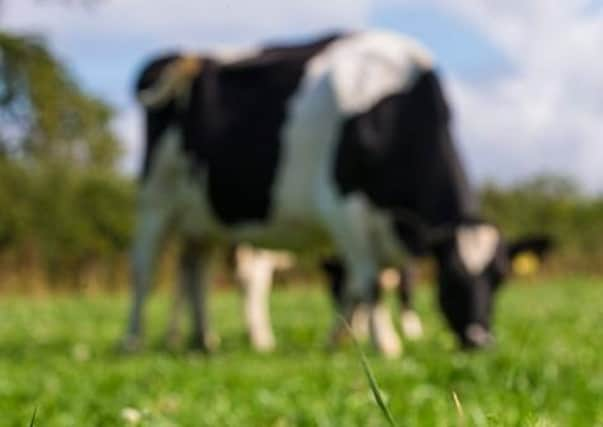Working together will forge vital links in Scotland’s food supply chain – Tim Bailey


Let’s not be fooled by the apparent simplicity of the food supply chain. Panic buying of eggs, meat and flour during March, the biggest grocery shopping month on record, led us to believe that empty shelves were simply a result of the laws of supply and demand.
Over recent weeks, any belief amongst those in the sector that the food and drink supply chain has been taken completely for granted, has been confirmed, albeit that the UK administrations have recognised how critical food and farming are.
Advertisement
Hide AdAdvertisement
Hide AdWith most consumers having no thought for the scale and complexities of producing and supplying enough to sustain us, empty shelves have been met, not only with concern, but with bewilderment.
In reality, the food and drink supply chain is far from simple. Now, more than ever, there are numerous challenges – access to processing, a consumer wish for a mixed basket, new marketing techniques, changes in ordering and payment systems and much more. Likewise, farming is in a position of uncertainty, with climate and labour challenges and market unpredictability a reality for many.
Where there are challenges, there are opportunities. Without doubt, the world is different and our shopping habits have changed, leading to more local food and drink demand.
However, when working alone, all businesses in the chain, from farm or catch to plate, can struggle to meet that demand in ways that consumers expect. By working together, partners in the supply chain can share insight, plan, aggregate, pool logistics, joint purchase, scale up, make best use of labour and reduce risk. Working together is compelling – making it more financially viable for businesses, at the same time creating a much more attractive proposition for consumers.
Those organisations and individuals working within the Scottish food supply chain sector are carrying out a critical job. The newly-launched Support Local initiative from Scotland Food & Drink and Quality Meat Scotland Scotch Beef and Scotch Lamb marketing campaigns are helping to further promote the importance of locality to the Scottish public at a critical time, acknowledging the importance of provenance and local availability.
At SAOS, as Scotland’s experts on farmer co-ops and food industry supply chain collaboration, we have been working within the food and farming sector for many years. We understand that those in the sector working together can do things that can’t be done alone. With pooled resources, co-operatives and collaborative ventures provide a route to multiple benefits, all of which are particularly vital in times of trouble, when resilient supply chains are needed more than ever.
The Scotland-wide Market Driven Supply Chains Project is designed to help unlock some of the biggest and most lucrative market opportunities for the Scottish food and drink sector and is one of the most exciting and effective ways for businesses and their supply chain partners to achieve their growth ambitions. Funded by Scottish Government, SE and HIE, the unique SAOS team helps businesses and key sectors add value throughout the chain to deliver what markets want. The project has created or safeguarded more than 1,200 jobs and generated over £37 million in sales and efficiency gains in UK and international markets in the last three years alone, providing yet more evidence that expert support and collaborative working delivers value.
SAOS also works with several sector groups including The Chocolatiers and The Fine Cheese Makers of Scotland. Encouraging those involved to find common vision and focus and a reason to work together, allows group members to achieve far more than they could individually. Critically, such groups have also benefited from SAOS involvement in terms of organisation, co-ordination, expertise, networks and creating valuable presence and profile.
Advertisement
Hide AdAdvertisement
Hide AdAllied to this is our sector development work with our partners, Scotland Food & Drink. The contribution to, and creation of, a strategy and action plans for key sectors, such as pork, venison, dairy, poultry and organics, has shaped a relevant long-term approach that ties in with the wider food and drink industry’s Ambition 2030. Work has involved industry consultation, talking to leadership and marketing experts and building interaction, influence and communication in order to deliver against strategic objectives.
The Scottish food and farming industry is resilient and we are already seeing business being undertaken in new and different ways in reaction to the fallout from Covid-19. Businesses are developing their online offerings, working to create hubs, moving from wholesale to retail markets and changing their product offerings to meet consumer demand.
Without doubt, food and drink businesses need to adapt to the new normal. Times of adversity tend to encourage collaboration and knowing that you aren’t alone is vital. No business is an island and never have we seen a time when partnership is more important. If your food and drink or farming business is yet to reap the benefits of collaboration and co-operative working, SAOS expertise can help to unlock previously unseen benefits.
To find out more about the work of SAOS and to get in touch, please visit www.saos.coop
Tim Bailey, Chief Executive of SAOS
Comments
Want to join the conversation? Please or to comment on this article.